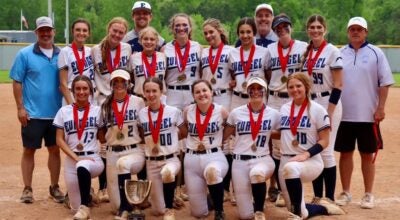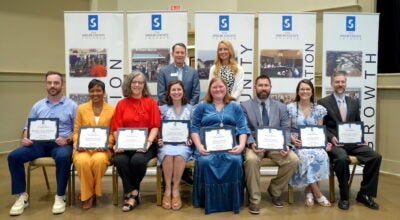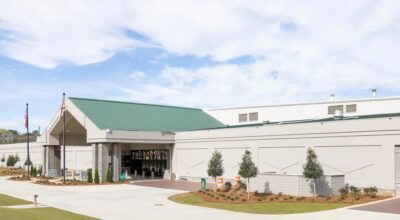Washing away the oil
Published 3:37 pm Thursday, July 29, 2010
Over the past few months, national newscasts have been filled with images of volunteers working to scrub and rehabilitate oil-covered birds affected by the Gulf of Mexico oil spill.
Chances are, a portion of the recent national coverage has included footage of a handful of Pelham volunteers working to save hundreds of fowl from the oil-filled ocean.
The Alabama Wildlife Center in Oak Mountain State Park has had at least one volunteer at the Alabama Oiled Avian Treatment Center in Theodore for the past two weeks.
While at the treatment center, the volunteers have been working to wash, warm, feed and rehabilitate tropical birds before releasing them into parts of the Gulf not affected by the oil spill.
Duane Brown, an Alabama Wildlife Center volunteer, recently returned from a two-day trip to Theodore, where he helped the Gulf center treat as many as 40 birds per day.
Because the Alabama Wildlife Center usually treats “four or five” birds affected by chemical spills each year, the Gulf center provided Brown a learning experience, he said.
“We have done a little bit here, but nothing on the level they are experiencing down there,” Brown said of the Gulf center. “We had a diesel fuel spill up here one year, and we treated some animals affected by that. We have things like that around here every now and then.
“We may treat four or five oil spill birds per year up here,” Brown added. “Down there, I got to handle and treat probably 30 or 40 birds per day.”
Volunteers from the Alabama Wildlife Center and similar institutions across the state joined representatives from the California-based International Bird Rescue Research Center at the Theodore center.
The Gulf center has been working to treat many different kinds of birds affected by the spill over the past few months, but Brown said he saw more Northern Gannet birds than any other type during his time in Mobile County.
When the center received an oiled bird, volunteers first washed the animal with dishwashing soap in temperature-controlled water, Brown said.
“If a bird has been oiled, you have to make sure you use water that is the accurate temperature,” Brown said. “When you wash birds with dish soap, you take off the oil, but you also take off the bird’s natural waterproofing.”
Without waterproofing, the birds are susceptible to potentially deadly chills, Brown said. After washing the animals, Gulf center volunteers work to ensure the birds are kept warm until they preen and regain their natural waterproofing.
In addition to washing oil off the birds, Gulf center volunteers also work to handle oil-related avian sickness, Brown said.
“Some birds are sick when we get them because they have eaten fish with oil on them,” Brown said. “The care we give them really varies from bird to bird, because they are all in different conditions when we get them.”
Brown’s wife, Lynn, is currently in Theodore working at the center, and Brown said he is eager to return to the Gulf as soon as he can.
“Everybody sits around and sees what’s going on down there, and I kept asking myself what I could do to help,” Brown said. “I feel like I really got a chance to make a difference by going down there.
“I am very glad I went,” he added. “I am hoping to go down again next week.”
To learn how to volunteer with or donate to the Alabama Wildlife Center, visit Awrc.org or call 663-7930.









